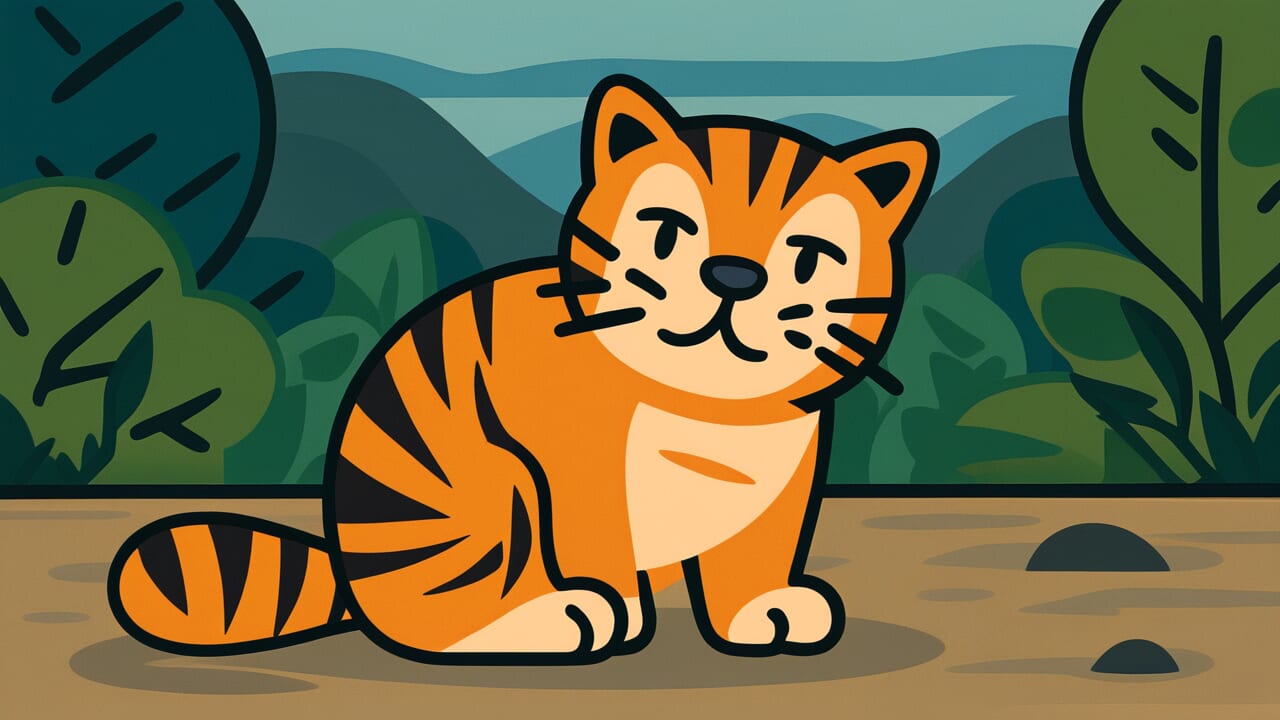How to Read “A cat doesn’t know a tiger’s heart”
ねこはとらのこころをしらず
Meaning of “A cat doesn’t know a tiger’s heart”
“A cat doesn’t know a tiger’s heart” means that people in weak positions cannot truly understand the feelings and thoughts of those in strong positions.
When there’s a big gap in power, status, or experience, people in lower positions cannot really grasp the weight of responsibility, the difficulty of decisions, or the loneliness that those above them carry.
This proverb is used when subordinates cannot understand their boss’s struggles, or when inexperienced people casually criticize veterans’ decisions.
From a weaker person’s viewpoint, a stronger person’s actions may look easy or confusing. But there are pressures and conflicts you can only understand by actually being in that position.
Even in modern society, these walls of understanding based on different positions exist everywhere.
Origin and Etymology
There doesn’t seem to be a clear record of when this proverb first appeared in written texts. However, we can make interesting observations from how the phrase is constructed.
Let’s look at the combination of cats and tigers. Biologically, cats and tigers both belong to the feline family. They look similar and share common movement patterns.
But there’s an overwhelming difference in their size and power. By contrasting the familiar cat with the distant tiger, this proverb expresses the relationship between the weak and the strong in an easy-to-understand way.
In Japan, people have long used animals as metaphors to show differences in viewpoint based on status and position.
People in weak positions find it hard to imagine the weight of responsibility, the pain of making decisions, and the loneliness that those in strong positions carry. A cat lives in its own world and cannot understand the pressure and sense of mission that a tiger bears.
This proverb doesn’t just show a difference in power. It sharply points out an essential truth about human society: when your position is different, the scenery you see and the weight you feel are completely different.
From a small cat’s perspective, the tiger’s world is a realm it can never understand.
Usage Examples
- When I was new, I questioned the president’s decisions, but looking back now, a cat doesn’t know a tiger’s heart
- My subordinates say it sounds easy, but a cat doesn’t know a tiger’s heart—only I understand the weight of this decision
Universal Wisdom
The proverb “A cat doesn’t know a tiger’s heart” expresses an eternal truth in human society: differences in perspective based on position.
Why was this proverb created and passed down through generations? It’s because humans have a fundamental limitation—we can only understand things within the range of our own experience and viewpoint.
We all tend to think that the world we see is everything. But in reality, when your position changes, the scenery you see becomes completely different.
The loneliness of bearing responsibility, the agony of making decisions, the tension of enduring pressure—these are feelings that only those who have been in that position can know.
What’s interesting is that this proverb doesn’t blame the weak. Rather, it assumes that not understanding is natural.
It’s not the cat’s fault that it doesn’t know the tiger’s heart. It’s an unavoidable reality caused by the difference in position.
This insight teaches us the importance of humility in human relationships. It’s natural that there are things we cannot understand.
Acknowledging that others’ positions contain something beyond our imagination—isn’t that the starting point of true compassion?
When AI Hears This
Cats and tigers share over 90 percent of their DNA genetically. But a cat’s inability to understand a tiger’s heart isn’t simply a matter of size difference.
In cognitive science, this is called “the limits of experience-dependent theory of mind.” In other words, it’s extremely difficult to imagine sensations or motivations in others that you’ve never experienced yourself.
Cats have experience hunting prey, but only small mice and birds. Meanwhile, the tension a tiger feels when taking down large prey, the urgency of going hungry for days if it fails, the risk of being counterattacked and killed—these aren’t part of a cat’s daily life.
According to research by cognitive scientist Premack, even primates find it difficult to accurately guess fears or desires in others that they haven’t experienced themselves.
For a cat, a tiger’s psychological state is like a prediction model with missing data. It’s equivalent to trying to estimate output that’s outside the range of input values.
What’s interesting is that this cognitive limitation is one-directional. Tigers have evolutionary memories of once being small animals and have experience hunting small prey, so they can understand a cat’s heart to some degree.
But understanding from cat to tiger is structurally impossible. This has the same cognitive structure as people living in peaceful times being unable to fully understand the psychology of war survivors.
Asymmetry in experience creates asymmetry in understanding.
Lessons for Today
What this proverb teaches modern people is the importance of imagination and humility toward others.
In an age when anyone can express opinions on social media, we tend to forget differences in position and easily criticize others. But do we really understand the pressure and responsibility that person is actually carrying?
When you question someone’s judgment or actions, try pausing for a moment. Have I ever been in that position? Do I really understand the scenery that person is seeing?
Even if complete understanding is difficult, just acknowledging that there are things you cannot understand will broaden your perspective.
At the same time, if you’re in a position of responsibility, this proverb offers a different lesson. Accept that it’s natural for people in lower positions not to understand.
Don’t get angry about not being understood. Make the effort to explain carefully. That attitude builds trust.
True dialogue begins when we acknowledge our differences in position.



Comments